Search Results
Showing results 1 to 20 of 185

Number Sense and Computation: Money Counts
Source Institutions
In this math lesson, learners count and compare amounts of money less than or equal to one dollar.

Fizzy Nano Challenge
Source Institutions
This lesson focuses on how materials behave differently as their surface area increases.
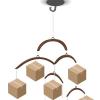
The Boxes Go Mobile
Source Institutions
Learners display their findings after a study of surface area and volume. They build a mobile to show a commercially available box and a constructed cubical box of the same volume.

Lifting with Levers!
Source Institutions
In this fun hands-on activity learners explore a simple machine: the lever. What happens to a load when you multiply the length of a lever? Find out here!
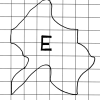
Geometry and Spatial Relations: Sidewalk Capers
Source Institutions
In this math lesson, learners use a variety of manipulatives to explore spatial relationships of squares and their transformations.

Battleships: Searching Algorithms
Source Institutions
This activity explores the main algorithms that are used as the basis for searching on computers, using different variations on the game of battleships.
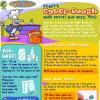
Digit's Cyber-Dough
Source Institutions
In this fun hands-on activity, learners whip up a batch of cyber-dough (play dough) using math for measurements.
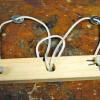
Two Washers
Source Institutions
In this activity, learners create a mind and math puzzle that requires a three-dimensional solution.
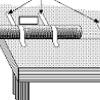
Making a One-Second Timer
Source Institutions
This lab activity has learners create a pendulum with a one-second period.
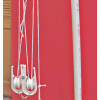
Pulleys
Source Institutions
In this activity, learners build inexpensive pulley assemblies from pulley wheels used for sliding screen door replacement or from clothesline spreaders.
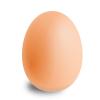
Don't Crack Humpty
Source Institutions
Groups of learners are provided with a generic car base and an egg. Their mission: design a device/enclosure to protect the egg on or in the car as it rolls down a ramp with increasing slopes.

Incredible Shrinking Shapes
Source Institutions
In this activity, learners get hands-on experience with ratios and scaling while making their own jewelry out of recycled plastic containers.
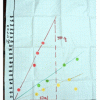
Plot the Dot: A Graphical Approach to Density
Source Institutions
In this activity, learners work in groups to determine the mass and volume of four samples: glass marbles, steel washers or nuts, pieces of pine wood, and pieces of PVC pipe.

Inverse Functions: Pennies, Pressure, Temperature, and Light
Source Institutions
The major goal of this math lesson is to have learners collect data from a variety of experiments, determine what models best fits their data, and explain why their models are best.

Plugged in to CO2
Source Institutions
In this activity, learners investigate various appliances and electronics, discovering how much energy each uses and how much carbon dioxide (CO2) is released to produce that energy.
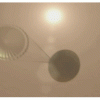
Landing the Rover
Source Institutions
In this team design challenge (page 19-24 of PDF), learners "land" a model Lunar Rover in a model Landing Pod (both previously built in activities #3 and #4 in PDF).
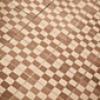
Twisted Tesselations
Source Institutions
In this activity (on pages 41-47 of PDF), learners explore tesselating geometric patterns (repeated shapes, similar to the art of M.C. Escher).

Linear Functions: Mystery Liquids
Source Institutions
In this math lesson, learners analyze the density of liquids in order to explore linear functions.

Carbon Sequestration
Source Institutions
In this inquiry-based lesson, learners measure the biomass of trees, calculate the carbon stored by the trees, and use this information to create recommendations about using trees for carbon sequestra
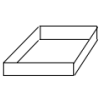
Polynomial and Rational Functions: Building Boxes
Source Institutions
In this math lesson, learners explore polynomial and rational function patterns.
